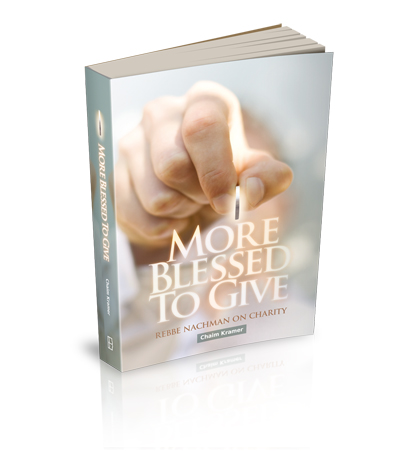Reb Chaim Krassenstein of Kharkhov (a city in eastern Ukraine) was a Breslover chassid who lived in Russia before the Communist Revolution. Reb Chaim was a successful manufacturer, and his business made him quite wealthy. In the beginning he tithed his income, but as his wealth grew, he began to give 20% to charity. He would either send it to Uman (where the largest Breslov community lived at that time), or he would bring it there himself when he joined the chassidim for the annual Rosh HaShanah gathering.
After a time, he declared, “I decided I want to be a 50% partner with Rebbe Nachman. Whatever I earn, I am going to consider Rebbe Nachman as my silent partner and divide the income in half – half for the Rebbe and half for myself and my family.”
He fulfilled his promise scrupulously, and to his good fortune, grew even wealthier. At one point, he had so much money that he was afraid to keep it in Kharkhov. He consulted with the chassidim in Uman, and they suggested that just as his “partner’s” money was shipped to Uman, why not keep his own money in Uman as well? After converting his income to gold, he shipped it to Uman, where it was hidden by his friends and held for him.
In 1917 the Communist Revolution changed the face of Russia. Following several years of war and repression, the regime began to nationalize all the factories under the pretense that capitalism took advantage of the workers and it was time to return the wealth to the people. When they came to Kharkhov, they investigated Reb Chaim’s books and, not surprisingly, concluded that he was making a lot of money on the backs of the common workers. The government ruled to strip him of all his assets and exile him from Kharkhov. He was ordered to leave the next day and was permitted to take with him only the clothes he was wearing.
Reb Chaim traveled to Uman where he had a fortune of gold waiting for him, and was able to live comfortably for the rest of his life.

